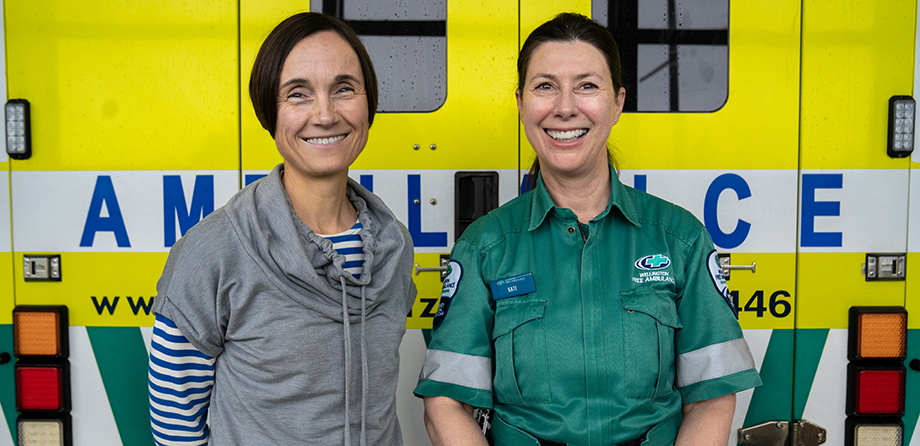About Us
We are the only emergency ambulance service in greater Wellington and the Wairarapa, and the only ones in the country who are free.
We are the only emergency ambulance service in greater Wellington and the Wairarapa, and the only ones in the country who are free.
What we doOur news
Ensuring Patient Safety through Infection Prevention and Control
Ensuring Patient Safety through Infection Prevention and Control
 18 November 2020
18 November 2020
Wellington Free Ambulance Infection Prevention and Control (IPC) initiatives ensure patient safety is always first and foremost in everything we do.

Improvement and Experience Manager, Emily says Infection Prevention and Control is crucial to patient safety and relevant for all health professionals and patients during all health interactions.
“Everyone has a role to play to keep themselves, their patients, their whānau and their colleagues safe.”
Emily says Wellington Free have recently engaged a specialist IPC agency to support the service to design and implement a comprehensive IPC programme tailored to an ambulance setting.
“As this project progresses our staff will see some changes to equipment, cleaning supplies and new procedures for PPE, cleaning, disinfection and decontamination.”
Part of this project is about, increasing education and learning opportunities for our staff by having IPC Champions among their peers and further developing our policies and procedures to reflect our emergency care setting.
“Emergency Medical Technician, Kate, one of our IPC Champions recently helped create an updated video of how to don and doff PPE safely. This resource will help support staff in their day-to-day IPC practice.”
Kate says being part of the video was a great opportunity to help educate everyone on one critical part of patient safety. “For me, this year’s Aotearoa Patient Safety Day theme of getting through together means everyone is responsible for patient safety, this includes staff, our patients and their whānau.”
During our response to COVID-19, Emily says staff were supported to navigate changing IPC processes as the situation evolved.
“As well as following our usual practices, to keep everyone safe during this time, our staff would stop two meters from patients, pause to ask questions about symptoms and history and decide what interventions and what PPE was required.
“As we learnt more about COVID-19, changes to our clinical procedures and guidelines were introduced to protect patients and staff,” says Emily.
The World Health Organisation identified “5 Moments for Hand Hygiene” in healthcare and our ICP Champions’ role is to make the ‘5 Moments for Hand Hygiene’ relevant to our Patient Transport Service and Emergency Ambulance Service as well as exploring the development of an IPC app for staff.”
Emily says it may seem obvious but hand hygiene is of utmost importance, both at work and at home. “Hands are the main pathways of germ transmission, therefore hand hygiene is the most important measure to keep our patients safe and avoid transmission of harmful germs and prevent infections.”
IPC is designed to prevent harm caused by infection to patients and healthcare workers. It’s a complex topic but one where we can all keep getting better at together.
As part of Aotearoa Patient Safety Day (Tuesday 17 November), every day this week we are sharing how we ensure patient safety in all that we do.